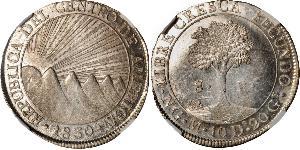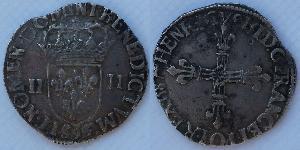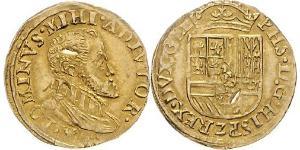(sold for $63.0)
1937, Germany. "General Erich Ludendorff" Silver Matte-Proof Medal with Box!
Mint Year: 1937 Mint Place: Vienna Medallist: B. Bleeker Reference: Colbert/Hyder S. 11. Condition: A nice matte-proof medal in original box of issue! Denomination: Medal - General Erich Ludendorff (victor of the Battle of Liege and the Battle of Tannenberg) Material: Silver (.835) Weight: 21.19gm Diameter: 36mm
Erich Friedrich Wilhelm Ludendorff (9 April 1865 – 20 December 1937) was a German general, the victor of the Battle of Liège and the Battle of Tannenberg. From August 1916, his appointment as Quartermaster general (German: Erster Generalquartiermeister) made him the leader (along with Paul von Hindenburg) of the German war efforts during World War I. The failure of Germany's great Spring Offensive in 1918 in quest of total victory was his great strategic failure and he was forced out in October 1918.
After the war, Ludendorff became a prominent nationalist leader, and a promoter of the Stab-in-the-back myth, which posited that the German loss in World War I was caused by the betrayal of the German Army by Marxists, Bolsheviks, and Jews who were furthermore responsible for the disadvantageous settlement negotiated for Germany in the Treaty of Versailles. He took part in the failed Kapp Putsch (coup d’état) with Wolfgang Kapp in 1920 and the Beer Hall Putsch of Adolf Hitler in 1923, and in 1925, he ran unsuccessfully for the office of President of Germany against his former superior Hindenburg.
From 1924 to 1928, he represented the German Völkisch Freedom Party in the Reichstag (legislature). Consistently pursuing a purely military line of thought, Ludendorff developed after the war, the theory of "Total War", which he published as Der totale Krieg (The Total War) in 1935. In this work, he argued that the entire physical and moral forces of the nation should be mobilized, because peace was merely an interval between wars. Ludendorff was a recipient of the Grand Cross of the Iron Crossand the Pour le Mérite.
Nazi Germany is the common English name for the period in German history from 1933 to 1945, when Germany was under the dictatorship of Adolf Hitler through the Nazi Party (NSDAP). Under Hitler's rule, Germany was transformed into a totalitarian state in which the Nazi Party controlled nearly all aspects of life. The official name of the state was Deutsches Reich ("German Reich") from 1933 to 1943 and Großdeutsches Reich("Great-German Reich") from 1943 to 1945. The period is also known under the names the Third Reich (Drittes Reich, meaning "Third Realm" or "Third Empire", with the Holy Roman Empire and the German Empirebeing the first two) and the National Socialist Period (Zeit des Nationalsozialismus, abbreviated as NS-Zeit, literally "Time of National Socialism"). The Nazi regime ended after the Allied Powers defeated Germany in May 1945, ending World War II in Europe.
Hitler was appointed Chancellor of Germany by the President of the Weimar Republic Paul von Hindenburg on 30 January 1933. The Nazi Party then began to eliminate all political opposition and consolidate its power. Hindenburg died on 2 August 1934 and Hitler became dictator of Germany by merging the offices and powers of the Chancellery and Presidency. A national referendum held 19 August 1934 confirmed Hitler as sole Führer (leader) of Germany. All power was centralised in Hitler's person and his word became above all laws. The government was not a coordinated, co-operating body, but a collection of factions struggling for power and Hitler's favour. In the midst of the Great Depression, the Nazis restored economic stability and ended mass unemployment using heavy military spending and a mixed economy. Extensive public works were undertaken, including the construction of Autobahnen (motorways). The return to economic stability boosted the regime's popularity.
Racism, especially antisemitism, was a central feature of the regime. The Germanic peoples (the Nordic race) were considered by the Nazis to be the purest branch of the Aryan race and were therefore viewed as the master race. Millions of Jews and other peoples deemed undesirable by the state were murdered in the Holocaust. Opposition to Hitler's rule was ruthlessly suppressed. Members of the liberal, socialist, and communist opposition were killed, imprisoned, or exiled. Christian churches were oppressed, with many leaders imprisoned. Education focused on racial biology, population policy, and fitness for military service. Career and educational opportunities for women were curtailed. Recreation and tourism were organised via the Strength Through Joy program, and the 1936 Summer Olympics showcased the Third Reich on the international stage. Propaganda minister Joseph Goebbels made effective use of film, mass rallies, and Hitler's hypnotic oratory to influence public opinion. The government controlled artistic expression, promoting specific art forms and banning or discouraging others.
Beginning in the late 1930s, Nazi Germany made increasingly aggressive territorial demands, threatening war if they were not met. It seized Austria and Czechoslovakia in 1938 and 1939. Hitler made a non-aggression pact with Joseph Stalin and invaded Poland in September 1939, launching World War II in Europe. In alliance with Italy and smaller Axis powers, Germany conquered most of Europe by 1940 and threatened the UK. Reichskommissariats took control of conquered areas and a German administration was established in what was left of Poland. Jews and others deemed undesirable were imprisoned, murdered in Nazi concentration camps and extermination camps, or shot.
Following the German invasion of the Soviet Union in 1941, the tide gradually turned against the Nazis, who suffered major military defeats in 1943. Large-scale aerial bombing of Germany escalated in 1944 and the Axis powers were pushed back in Eastern and Southern Europe. Following the Allied invasion of France, Germany was conquered by the Soviet Union from the east and the other Allied powers from the west and capitulated within a year. Hitler's refusal to admit defeat led to massive destruction of German infrastructure and additional war-related deaths in the closing months of the war. The victorious Allies initiated a policy of denazificationand put many of the surviving Nazi leadership on trial for war crimes at the Nuremberg trials.
Only 1$ shipping for each additional item purchased!

|
Posted by:
anonymous 2018-03-20 |























